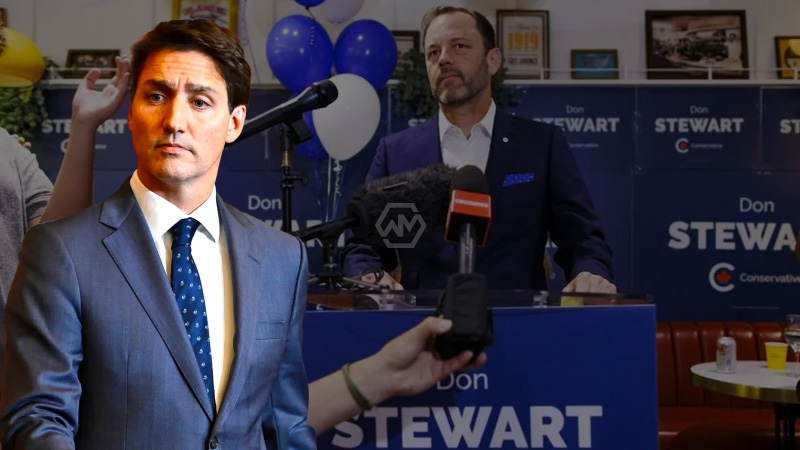- Conservative candidate Don Stewart won by 590 votes, ending a 30-year Liberal hold.
- Conservative leader Pierre Poilievre called for a snap election following the upset.
- The victory signals significant challenges for Prime Minister Justin Trudeau’s government.
In a stunning turn of events, Conservative candidate Don Stewart narrowly defeated Liberal Leslie Church in the Toronto-St. Paul’s byelection, a seat the Liberals had held for over 30 years. Stewart’s victory by just 590 votes marks a significant blow to Prime Minister Justin Trudeau and his party, signaling growing voter dissatisfaction amid economic challenges and rising hate crimes.
Conservative leader Pierre Poilievre seized the opportunity to call for a snap election, emphasizing the need to address issues like the carbon tax. Trudeau, acknowledging the defeat, expressed the necessity for the Liberal Party to rebuild trust and address the concerns of Canadians. This byelection result could potentially reshape the political landscape and strategies for future elections.
Conservative Victory Shakes Liberal Stronghold in Toronto Byelection
The Toronto-St. Paul’s byelection saw Conservative candidate Don Stewart secure a surprising victory, ending a Liberal dominance that spanned more than three decades. Stewart’s win by a slim margin of 590 votes against Liberal candidate Leslie Church has sent shockwaves through the political landscape, highlighting voter dissatisfaction with the current government.
Pierre Poilievre, the Conservative leader, quickly called for a snap election, emphasizing the need for urgent policy changes, particularly regarding the carbon tax. This victory not only strengthens Poilievre’s position but also demonstrates the Conservative Party’s growing appeal in urban areas, which have traditionally been Liberal strongholds.
Prime Minister Justin Trudeau, responding to the defeat, acknowledged the frustrations of voters and the need for the Liberal Party to work harder to deliver tangible progress. This loss, combined with current economic challenges and a rise in hate crimes, underscores the difficulties faced by the Trudeau government in maintaining voter confidence.
The byelection’s outcome also underscores the impact of independent candidates, who collectively garnered a significant portion of the vote, reflecting a broader dissatisfaction with the first-past-the-post system. As the Liberals and Conservatives prepare for the next general election, this result could lead to strategic shifts and a reevaluation of campaign approaches.
This byelection victory for the Conservatives represents a pivotal moment in Canadian politics, highlighting the need for both major parties to address the evolving concerns of the electorate as they prepare for the next general election.
“This defeat for the Liberals is a kick to a party already down in the polls. The vote proves the polls reflect reality, said Scott Reid, who worked as the director of communications for former prime minister Paul Martin.”



